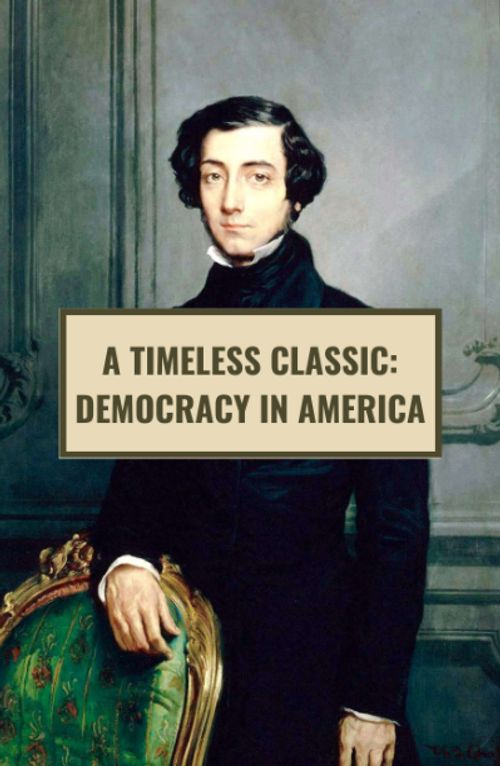"Ready-made opinions" and other problems of democracy
Jul 29, 2022 · 2 mins read
0
Share
Introduction. Alexis de Tocqueville was a French diplomat best-known for his political science classic: Democracy In America (1835). Tocqueville investigates the nature of democracy, how it affects people's minds and lives, the place of religion, and more. Top 9 insights 👇
Save
Share
French philosopher Pierre Manent writes in Tocqueville and the Nature of Democracy that we must face three political questions today: "What is the nature of democracy? What are its effects on human nature? What must be done to preserve it, or mitigate its worst tendencies?"
Save
Share
On equality. Tocqueville writes that the concept of equality either compels the weak to strive and improve, or takes a "depraved" turn and works to "bring the strong down." There ARE those amongst us who prefer "equality in servitude to inequality in freedom."
Save
Share
In a democracy, social disapproval still looms like a sword over the neck of dissidents: “In America the majority raises formidable barriers around the liberty of opinion; within these barriers an author may write what he pleases, but woe to him if he goes beyond them.”
Save
Share
Tocqueville laments how people are served pre-packaged opinions to swallow: “In the United States, the majority undertakes to supply a multitude of ready-made opinions for the use of individuals, who are thus relieved from the necessity of forming opinions of their own."
Save
Share
In an age of materialist ease, Tocqueville saw religion as an agent for awakening men from their lethargy: “The main business of religions is to purify, control, and restrain that excessive and exclusive taste for well-being which men acquire in times of equality.”
Save
Share
The idea of equality was never restricted to a narrow legal definition - it escaped on day one, and colored everything. Now it dictates the nature of our imagination too: “The principle of equality does not destroy the imagination, but lowers its flight to the level of the earth.
Save
Share
Tocqueville on how we strain our ears to learn a valuable lesson from the past, but we hear only silence: "When the past no longer illuminates the future, the spirit walks in darkness." In a democracy, the past and the future recede - we live in a perpetual now.
Save
Share
Commercial nations are anti-revolutionary & anti-war: "Trade is the natural enemy of all violent passions. Trade loves moderation, delights in compromise, and is most careful to avoid anger. It is patient, supple...only resorting to extreme measures in cases of total necessity."
Save
Share
To be a nation capable of collective action, you need a shared worldview: “Without common ideas, there is no common action, and without common action men still exist, but a social body does not.” Social action is only possible if the society is bound by "some principle ideas."
Save
Share
0
